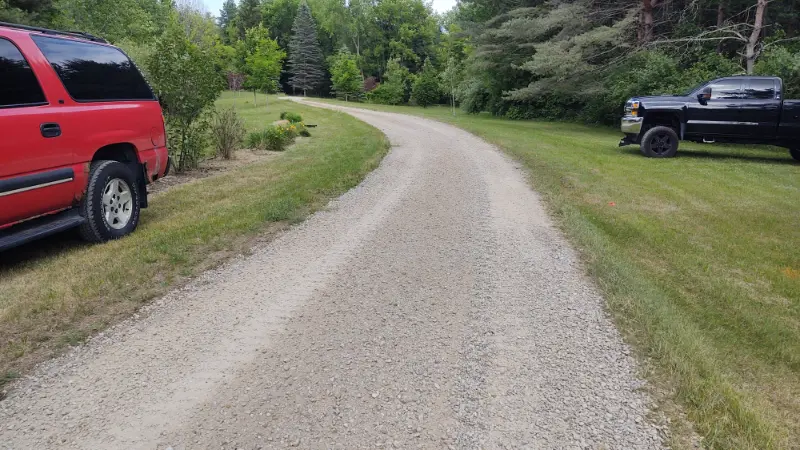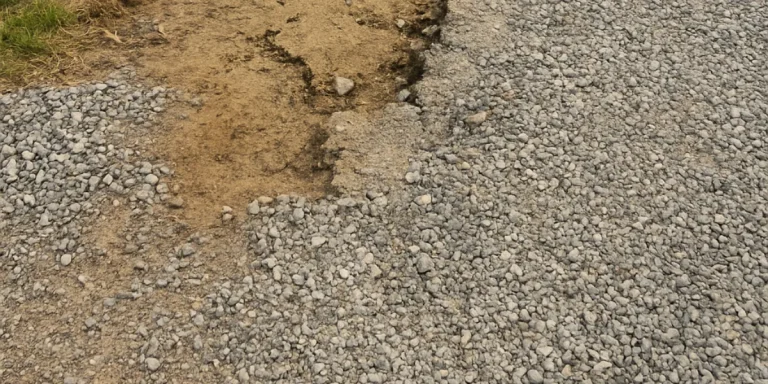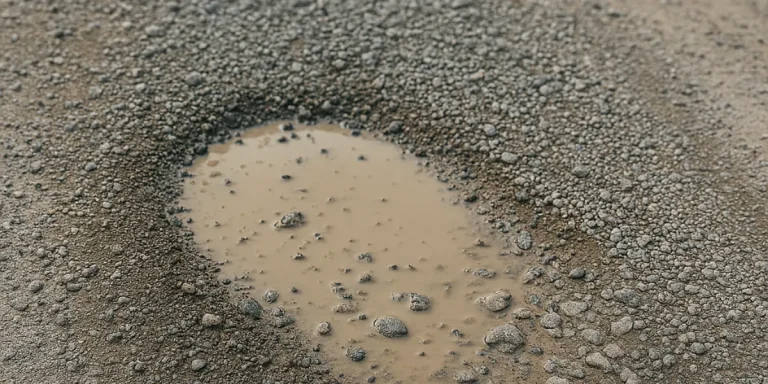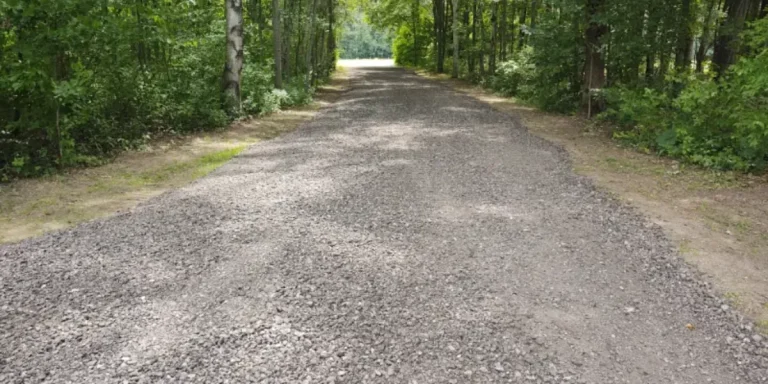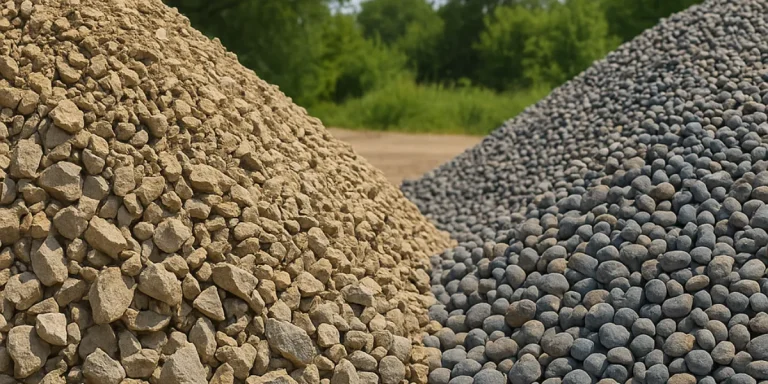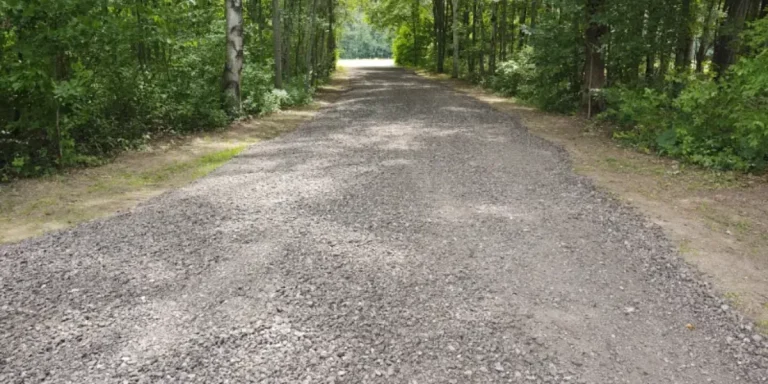How to Prevent Ruts and Washouts in Your Gravel Driveway
A gravel driveway is an affordable, attractive, and low-maintenance option for homes and rural properties across Clio, Michigan and surrounding areas. But if you’ve dealt with ruts, washouts, or standing water, you know how frustrating it can be to maintain. Left unchecked, these problems can lead to uneven surfaces, muddy messes, and even vehicle damage.
At Gath’s Landscaping, we specialize in gravel driveway installation and resurfacing. In this guide, we’ll break down the causes of ruts and washouts—and what you can do to prevent them.
What causes ruts and washouts in gravel driveways?
Understanding why ruts and washouts happen is the first step toward fixing them—and preventing them in the future. Gravel driveways are popular throughout Clio, Birch Run, Vassar, and other parts of Mid-Michigan because they’re cost-effective and durable when built correctly. But without proper installation and upkeep, they’re vulnerable to the forces of water, weather, and wear.
Below are the most common culprits behind gravel driveway damage:
Improper grading
Grading is one of the most critical factors in gravel driveway performance. If your driveway isn’t graded correctly, water won’t drain the way it should—and that’s where the trouble starts.
-
- A driveway with no slope or crown allows water to collect and travel along tire paths
- Over time, this running water cuts channels, deepens ruts, and weakens the structure beneath
- In Michigan’s freeze-thaw climate, standing water can also lead to heaving and cracking
A properly graded gravel driveway should have a slight crown in the center that allows water to run off toward the sides. At Gath’s Landscaping, we use professional grading equipment to restore proper slope and prevent future washouts.
Insufficient gravel base
A gravel driveway is only as strong as what’s underneath it. Many older or poorly installed driveways were built with too little material or lacked proper compaction.
-
- A base that’s too thin or made of the wrong materials will shift and sink under pressure
- Without a strong foundation, gravel becomes loose and ruts develop faster
- Water can quickly erode a weak base, especially in wet or low-lying areas
We recommend a minimum of 4 to 6 inches of compacted crushed stone as the base layer for any driveway project in Genesee County. This base is essential for long-term durability and stability.
Poor drainage
Water is the most damaging element for gravel surfaces. If your property doesn’t have a way to handle runoff from rain, snowmelt, or nearby slopes, that water will find the path of least resistance—usually your driveway.
-
- Poor drainage leads to standing water, which softens the gravel and accelerates erosion
- Inadequate side ditches or swales allow water to wash directly over the surface
- Steep driveways are especially at risk without water diversion methods in place
At Gath’s Landscaping, we often pair gravel resurfacing projects with French drain installation, dry creek beds, or gravel swales to keep water flowing where it should.
Heavy traffic or repeated use in one area
Even the best-built gravel driveways wear down over time, especially when the same tire paths are used daily by cars, delivery trucks, or trailers.
-
- Consistent pressure in narrow bands compacts gravel unevenly
- Ruts form along these paths, holding water and increasing erosion
- In rural areas, tractors and utility vehicles can worsen this effect
We often recommend adding a crushed asphalt top layer for clients with heavy-use driveways. This material compacts more tightly and is more resistant to ruts and washouts than loose gravel alone.
How to prevent ruts and washouts
While no gravel driveway is completely maintenance-free, many of the most common issues—like ruts, potholes, and washouts—can be avoided with proper installation and ongoing care. At Gath’s Landscaping, we specialize in building and maintaining gravel driveways that hold up to Michigan’s weather and daily use.
Here are the most effective ways to keep your gravel driveway in excellent condition year-round:
1. Start with a proper base
The most important factor in a long-lasting gravel driveway is a strong, stable base. If your driveway wasn’t built on solid ground with the right materials, it’s far more likely to rut, shift, and erode.
A durable gravel base should include:
-
-
- At least 4–6 inches of compacted crushed limestone, crushed asphalt, or a similar dense aggregate
- A layered approach, with larger stone at the bottom and finer gravel at the top for better compaction
- Heavy equipment compaction, not just spreading the material with a tractor or shovel
-
If your current driveway is too thin or wasn’t compacted properly, it might be time for a full gravel resurfacing or rebuild. This ensures you have the structure needed to withstand traffic and weather.
2. Grade for effective drainage
Water is the number one enemy of a gravel driveway. Without proper grading, water will sit on the surface, find the low spots, and quickly erode the material.
Here’s how proper grading helps:
-
-
- A slight crown down the center allows water to run toward the sides instead of collecting in the tire tracks
- Steeper driveways may require additional grading features, such as a side swale or berm to redirect runoff
- Proper grading reduces freeze-thaw damage by keeping the surface drier during seasonal changes
-
Gath’s Landscaping offers professional grading services that restore slope and shape to your driveway using skid steers and laser levels—no guesswork involved.
3. Maintain a regular top-up schedule
Gravel naturally breaks down and gets displaced over time, especially in high-use areas like turns, slopes, or entrances.
We recommend the following to keep your driveway looking and performing its best:
-
-
- Top-dress your driveway every 1–2 years with fresh gravel or crushed asphalt
- Use materials like crushed limestone, which lock together better than round rock and help prevent movement
- Ask our team to evaluate your existing gravel type and recommend the best match for your site conditions and traffic level
-
With material delivery and spreading services, Gath’s Landscaping makes it easy to keep your gravel driveway properly maintained.
4. Install drainage solutions if needed
Sometimes grading alone isn’t enough—especially on properties with steep slopes, high water tables, or low-lying areas. In those cases, adding dedicated drainage features is key to preventing washouts.
Depending on your property, we may recommend:
-
-
- French drains or trench drains to intercept and redirect water before it hits your driveway
- Culverts under the driveway to allow water to flow beneath instead of across
- Gravel swales with river rock to manage overflow along the edges
-
We’ve completed drainage-focused driveway upgrades for clients in Millington, Davison, Montrose, and other parts of Genesee County. These upgrades not only extend the life of the driveway but also protect adjacent landscaping and outbuildings.
5. Compact and re-grade as needed
Even a well-built gravel driveway will eventually develop uneven areas, especially after heavy storms or spring thaws. The key is to address these issues before they turn into deeper ruts or full washouts.
Our maintenance services include:
-
-
- Re-grading to smooth out the surface, rebuild the crown, and improve water flow
- Compacting loose gravel using professional machinery to minimize shifting and erosion
- Adding fresh gravel as needed to restore thickness and structure
-
Whether it’s a minor reshaping or a complete rework, Gath’s Landscaping has the right equipment and expertise to bring your driveway back to life.
Mini Case Study: A washed-out driveway in Frankenmuth
One customer in Frankenmuth had a steep gravel driveway that was washing out every spring. Water from the adjacent hill was running straight down the center of the drive, creating deep ruts and leaving a muddy mess. We regraded the surface with a proper crown, installed a side swale with river rock for drainage, and topped it with crushed asphalt. The result? No more ruts, and the driveway has held up beautifully for the past two years—even during heavy rain.
Proudly Serving Clio and Surrounding Areas
Gath’s Landscaping is based in Clio, Michigan and proudly serves homeowners and rural property owners in:
-
- Frankenmuth
- Birch Run
- Vassar
- Millington
- Davison
- Otisville
- Montrose
- Flushing
- Burt
- And nearby communities in Genesee County
Whether you need a full gravel driveway installation, professional grading, drainage solutions, or routine resurfacing, we have the experience and equipment to get the job done right.
Let’s fix your gravel driveway for good
Tired of dealing with ruts, potholes, or muddy washouts? Contact Gath’s Landscaping today to schedule a consultation or request a quote. We’ll evaluate your driveway, recommend the best course of action, and deliver high-quality results that last.
We serve Clio and the surrounding Michigan communities with expert gravel driveway solutions, property maintenance, and landscaping services you can count on.

